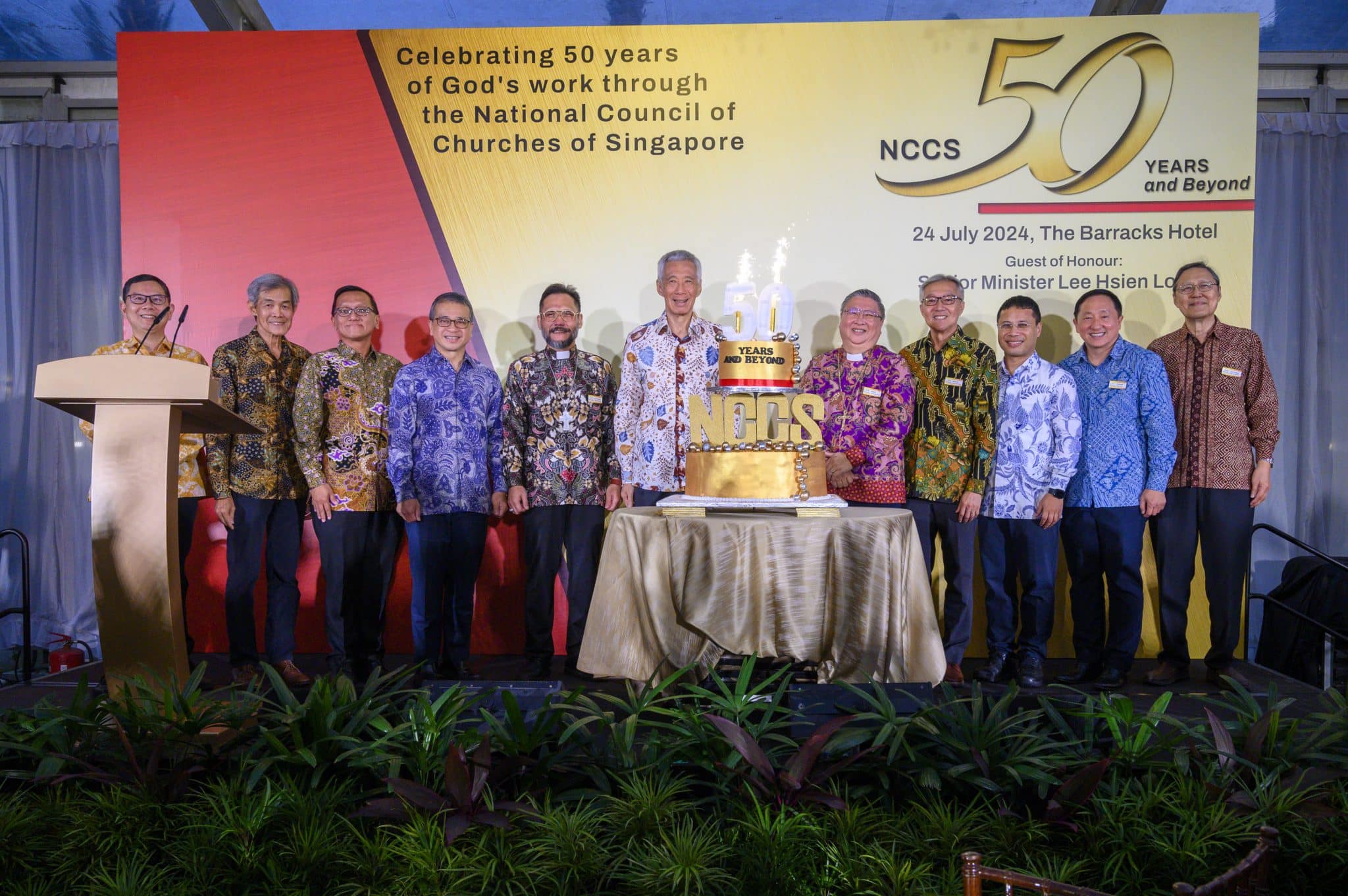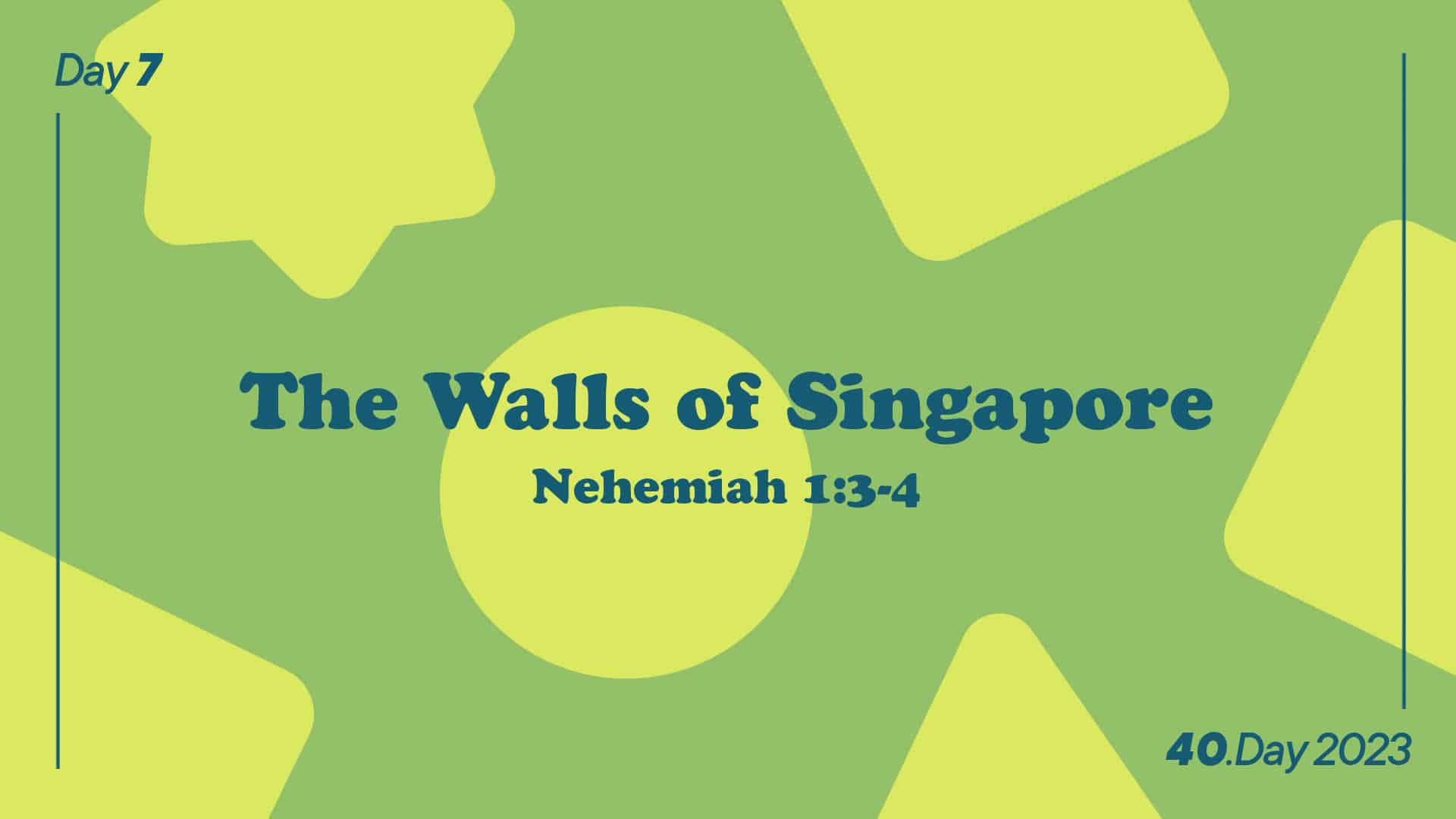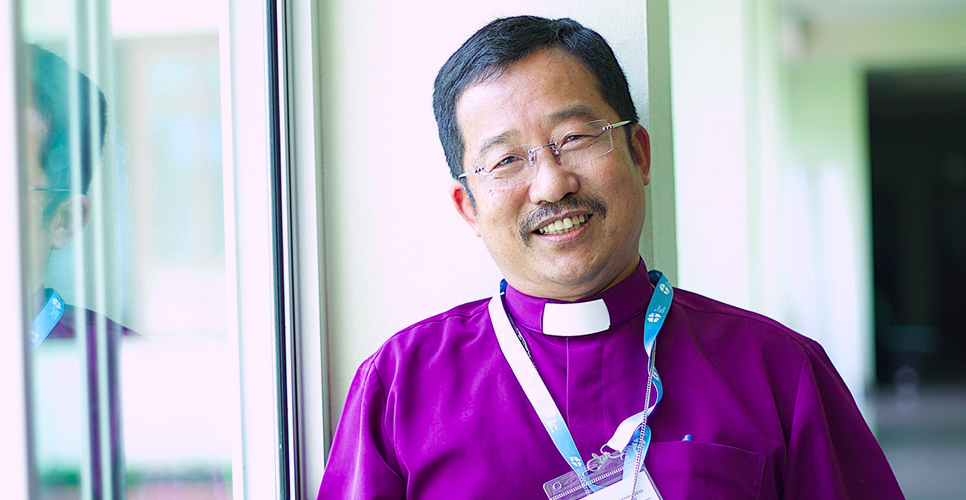
NCCS President Bishop Terry Kee.
Bishop Terry Kee, head of the Lutheran Church in Singapore, has been elected President of the National Council of Churches of Singapore (NCCS).
This was following a vote taken at the council’s Annual General Meeting in St Andrew’s Cathedral on April 19, 2018, with his two-year term commencing with immediate effect.
This is Bishop Kee’s second term as president; he was also president between 2012 and 2014. He succeeds Bishop Rennis Ponniah of the Anglican Diocese of Singapore.
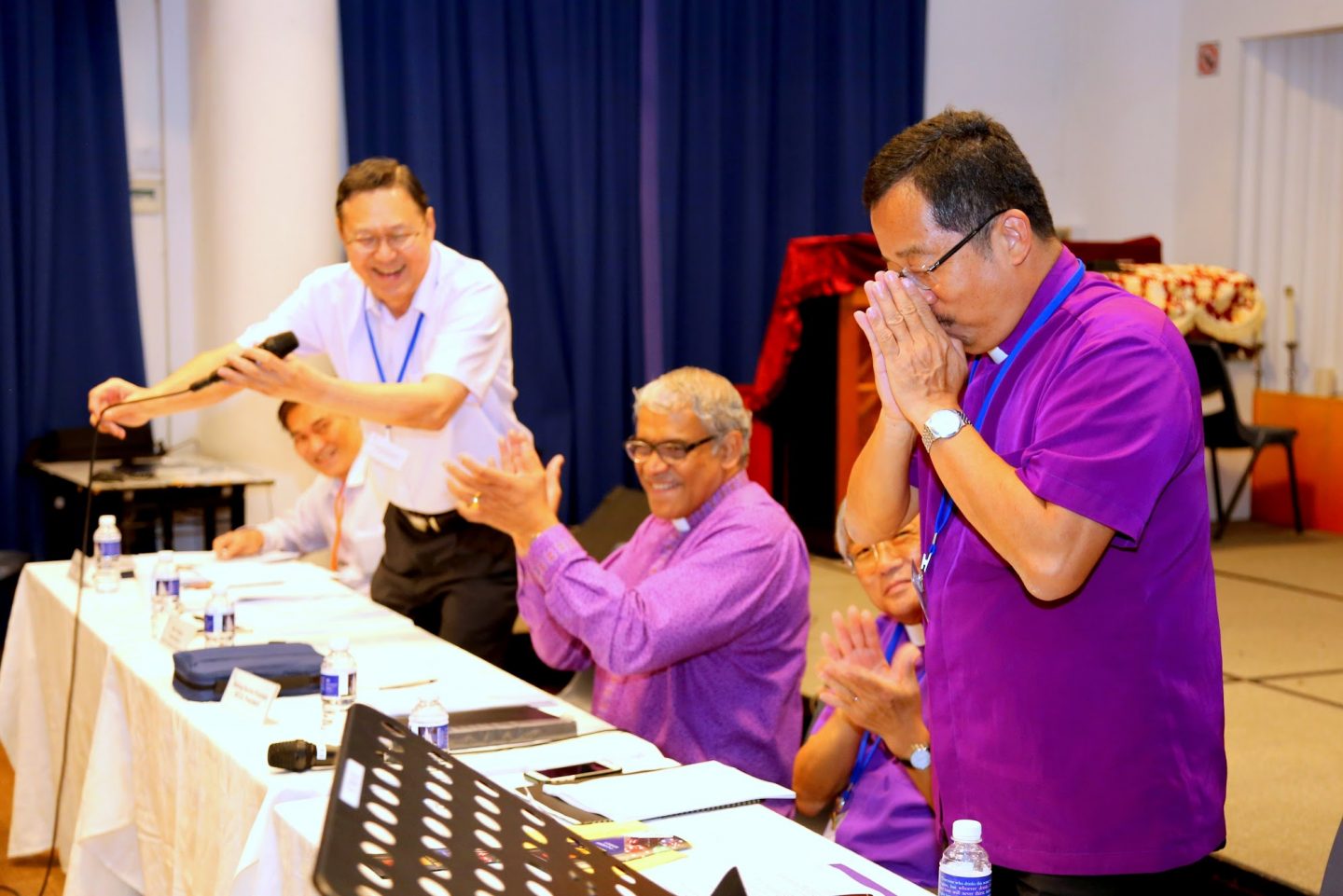
Reverend Ngoei Foong Nghian (left) presenting Bishop Terry Kee (right) as NCCS President.
“It is both a privilege and honour to serve the Lord as president of the NCCS. Bishop Rennis has served us well and I hope and trust that I can do that with the help of God,” said Bishop Kee.
“I see my role in NCCS as a bridge of peace and understanding between Christianity and other religions, as well as a channel of communication between the churches and relevant authorities.”
“I see my role in NCCS as a bridge of peace and understanding between Christianity and other religions.”
Bishop Kee has been leading the Lutheran Church of Singapore since 2009 and has served in the Lutheran Church since his graduation from Singapore Bible College in 1982. Prior to his appointment, he was serving as a missionary in Thailand for close to 10 years with his wife, Sally.
He obtained his Masters in Pastoral Care and Counselling at China Lutheran Seminary in Taiwan in 2007 and is also an alumnus of Singapore Bible College, where he obtained his Bachelor of Theology.
“I am very glad to hand over the reins of NCCS to Bishop Kee. He is a trusted and able leader, with good experience in leading NCCS in the past,” said Bishop Rennis.
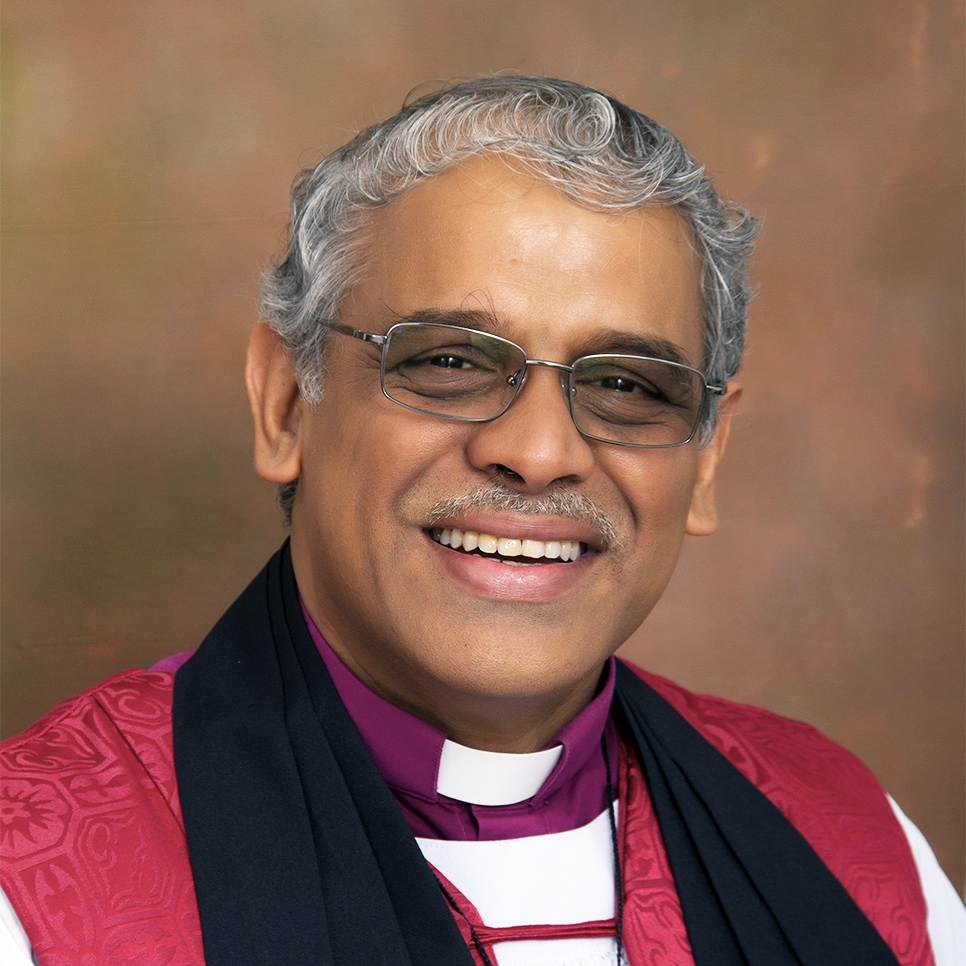
Anglican Bishop Rennis Ponniah was NCCS president from 2016 to 2018.
Reflecting on his term as president, Bishop Rennis shared that the council was led by God to take a major step forward in uniting the churches for evangelism.
“We have launched, together with the Evangelical Fellowship of Singapore, the Celebration of Hope 2019. This is a worship and proclamation event for all churches to come together in one place to proclaim and share the one name of Jesus that gives everyone solid hope in this life and the next.”
The NCCS, constituted as a national organisation of churches in July 1974, is made up of major Protestant, independent, and non-denominational churches in Singapore. According to its website, it has 255 member churches to date. Its role is to make representation on behalf of churches when the need arises.
Bishop Kee added that the NCCS will continue to work with the relevant government agencies to address the various concerns of the churches, with Bishop Rennis revealing that the council has been able to represent the needs of the churches and make proposals to the relevant government agencies, especially with respect to the provision of sites for places of worship.
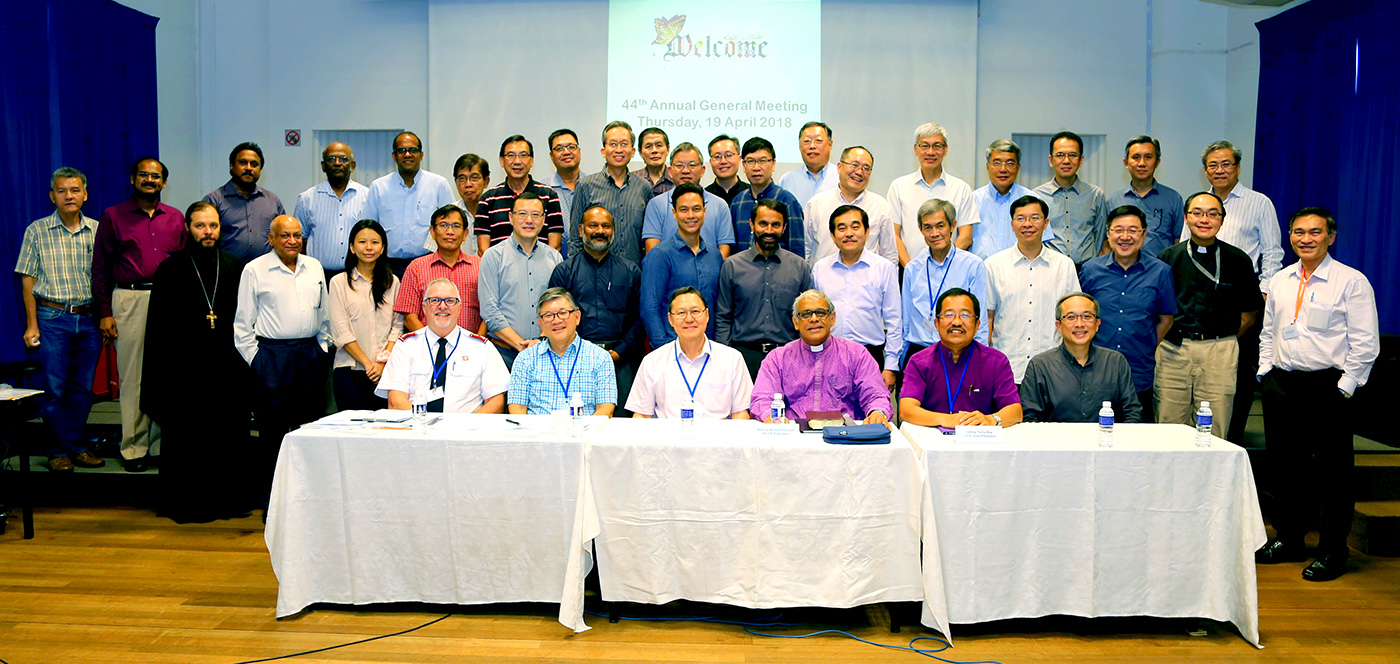
NCCS 44th AGM – Exco with church leaders. Photo courtesy Wong Leong Jeam.
According to NCCS’ constitution, the position of president rotates between the heads of one of the four traditional mainline denominations: Anglican, Lutheran, Methodist, and Presbyterian. Presidents are not allowed to serve consecutive two-year terms. Each of the heads of the remaining three mainline denominations assume the role of vice-president.
“In God’s grace, the president, the three vice presidents and the honorary general secretary have built up a practice of sharing the load and contributing our respective gifts and graces for the ministry of NCCS,” said Bishop Rennis.
“We are wonderfully assisted by a wider executive committee that includes leaders of other denominational groupings in Singapore. The work of NCCS is often enriched by the parts played by other Christian bodies in our land and it is our joy to harness their strengths.”
We are an independent, non-profit organisation that relies on the generosity of our readers, such as yourself, to continue serving the kingdom. Every dollar donated goes directly back into our editorial coverage.
Would you consider partnering with us in our kingdom work by supporting us financially, either as a one-off donation, or a recurring pledge?
Support Salt&Light

